This conference delves right into the ongoing debate surrounding the complex identification of endocrine disruptors and the implementation of EU guidance documents. It offers participants valuable insights into the latest regulatory and scientific advancements.
The ECHA/EFSA guidance for the identification of Endocrine Disruptors in the context of Regulations (EU) No 528/2012 and (EC) No 1107/2009 requires a highly complex and challenging assessment for all active substances. With the new hazard classes for EDs under the CLP regulation, the challenge has recently been broadened. This conference will dive right into the debate surrounding Endocrine Disruptors and covers all the latest relevant regulatory and scientific developments.
The Conference will be taking place in Dusseldorf/Germany on 25 and 26 November 2025 and you can follow all the exciting contributions via our live stream!
Would you instead prefer to join on-site in Dusseldorf? Then you can find further information here.
Highlights
Regulatory Developments and Future Perspectives
Next Generation Testing and Innovative Methods
Developments in Ecotoxicology
Beyond EATS: New Pathways and European Initiatives
Professionals working in the fields of:
Sectors that should take part:
Picture Credit: © Subbotina Anna/shutterstock.com, © chestra - Fotolia.com
Timings are in Central European Time CET.
Lennart Weltje, BASF, Germany
Emily McVey, National Institute for Public Health and the Environment (RIVM), The Netherlands
Kirsi Myöhänen, European Chemicals Agency (ECHA), Finland (virtually)
Jürgen Arning, German Environment Agency (UBA), Germany
Markus Wahl, BASF, Germany
Anette Thiel, Ramboll, Germany
Nikolay Tzvetkov, European Commission, Belgium (virtually)
Pierre-François Chaton, French Agency for Food, Environ-mental and Occupational Health & Safety (ANSES), France
Helen Tinwell, Bayer CropScience, France
ZhiChao Dang, National Institute for Public Health and the Environment (RIVM), The Netherlands
Valery E. Forbes, Florida Atlantic University, United States of America
Laurent Lagadic, Bayer, Germany
Chad Deisenroth, formerly U.S. Environmental Protection Agency (EPA), United States of America (virtually)
Timings are in Central European Time CET.
Lennart Weltje, BASF, Germany
Emily McVey, National Institute for Public Health and the Environment (RIVM), The Netherlands
Torben Österlund, Public-private platform for the validation of endocrine disruptors characterization methods (PEPPER), France
Denise Bloch, German Federal Institute for Risk Assessment (BfR), Germany
Karma Fussell, Wella, Germany
Arianna Bassan, Innovatune, Italy
Denise Bloch, German Federal Institute for Risk Assessment (BfR), Germany
Jorke Kamstra, Utrecht University, The Netherlands
Name
Company
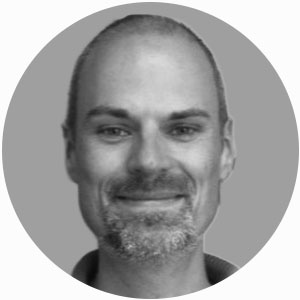
Jürgen Arning
German Environment Agency (UBA), Germany
Jürgen Arning holds a PhD in Biochemistry and works as a Regulatory Scientist at the German Federal Environment Agency. His main tasks comprise the identification and evaluation of endocrine disruptors in the environment under the REACH framework. Additionally, he is involved in initiating risk management measures for environmental ED and in accompanying scientific research projects. Since 2015 he has been a member of the ECHA Endocrine Disruptors Expert Group.
moreless
Arianna Bassan
Innovatune, Italy
Arianna Bassan is a consultant and European Registered Toxicologist (ERT) with a multidisciplinary background in chemistry, biology, and toxicology. As co-founder of Innovatune, she specializes in human health hazard assessment integrating (Q)SAR, read-across, and computational methods. She has led international groups on in silico toxicology and is now extending this work to AI-based toxicological risk assessment. She is the author of numerous peer-reviewed publications and reports.
morelessDenise Bloch
German Federal Institute for Risk Assessment (BfR), Germany
Denise Bloch heads the Junior Research Group “New Approach Methodology (NAM)-based assessment of mixtures” at the German Federal Institute for Risk Assessment (BfR). Her research is focused on improving the human health risk assessment of mixtures by the application of alternatives to animal testing. In the past, she has worked as a regulator in the zonal authorisation of plant protection products at BfR (DE), conducted research on active transport inhibition at the Helmholtz Centre for Environmental Research in Leipzig (DE) and has studied biogeochemistry at ETH Zurich (CH).
moreless
Pierre-François Chaton
French Agency for Food, Environmental and Occupational Health and Safety (ANSES), France
Pierre-François Chaton is Deputy Head of the Ecotoxicology and Environmental Fate Unit and a Senior Risk Assessor in ecotoxicology at the French Agency for Food, Environmental and Occupational Health and Safety (ANSES). He has more than 18 years of experience in regulatory risk assessment of plant protection products, including method development.
moreless
ZhiChao Dang
National Institute for Public Health and the Environment (RIVM), The Netherlands
ZhiChao Dang is EU Registered Toxicologist and Senior Risk Assessor and Project Coordinator at the Dutch National Institute for Public Health and the Environment (RIVM). He has an extensive track record in laboratory work focusing on endocrine regulation in animals and in regulating endocrine disruptors. His PhD study centred on the stress response in fish. Subsequently, he conducted research on phytoestrogens and metabolic diseases such as osteoporosis, obesity and diabetes, employing in vitro cell culture, molecular techniques and mammalian models at the Department of Endocrinology and Metabolic Diseases in Leiden University Medical Center. Over the past two decades, he has been actively involved in developing test methods, testing strategy and risk assessment of chemicals such as pharmaceuticals and industrial chemicals. He has served as a member of expert groups for several international organisations including OECD EDTA AG, OECD VMG Eco, OECD VMG NA, EU ED EAG, ECHA PEG for CLP, and EFSA EDEG. Additionally, he has contributed to discussions in the ECHA EDEG and BPC EG, providing input on guidance documents and on identification of endocrine disruptors.
moreless
Chad Deisenroth
formerly U.S. Environmental Protection Agency (EPA), United States of America
Chad Deisenroth holds a Ph.D. in Genetics and Molecular Biology and worked at the U.S. Environmental Protection Agency from 2016 until September of this year as a Cell Biologist in the Center for Computational Toxicology and Exposure. He led a research team focused on developing in vitro methods for high-throughput screening and complex culture models, with an emphasis on endocrine toxicity, xenobiotic metabolism, and developmental toxicity.
moreless
Valery E. Forbes
Florida Atlantic University, United States of America
Valery E. Forbes has been Professor in the Department of Biological Sciences and Dean of the Charles E. Schmidt College of Science at Florida Atlantic University since 2022. Previously, she served as Dean of the College of Biological Sciences at University of Minnesota, Director of the School of Biological Sciences at University of Nebraska-Lincoln, and Founding Head of the Department of Environmental, Social and Spatial Change at Roskilde University in Denmark. Her specific research topics include population ecology and modelling, fate and effects of toxic chemicals in sediments, and ecological risk assessment. She was work package leader of the EU Marie Curie Training Programme on mechanistic effect modelling (CREAM) from 2009 to 2014 and has served on the Danish Natural Sciences Research Council, the European Research Council, NATO’s Environmental Security Panel, and as ad hoc reviewer for numerous funding agencies from various countries.
moreless
Karma Fussell
Wella, Germany
Karma Fussell holds a PhD in Toxicology and joined Wella Company in 2024 as a Senior Principal Toxicologist responsible for the safety of the hair dye portfolio. She is a Diplomate of the American Board of Toxicology, with more than 10 years of experience developing methods, conducting studies and assessing safety, especially for endocrine active substances. Before joining Wella, Karma worked on ED topics for the food, plant protection and chemical industries and has participated in several international product safety groups. She is the author of numerous peer-reviewed publications and reports.
moreless
Jorke Kamstra
Utrecht University, The Netherlands
Jorke Kamstra is Associate Professor of Toxicology at Utrecht University, where he leads the Endocrine Toxicology group. His research focuses on molecular mechanisms of endocrine and metabolism disrupting chemicals, the development of in vitro assays and zebrafish models, and their application in next-generation risk assessment. He is actively involved in several European research consortia and in the validation of new test methods for regulatory use.
moreless
Laurent Lagadic
Bayer, Germany
Laurent Lagadic has been working in the Environmental Safety Division of Bayer CropScience in Germany for over 10 years. He currently leads the development and application of testing strategies for evaluating potential endocrine disrupting properties of pesticides and biocides for the environment. He holds a PhD in fundamental and environmental toxicology and has previously worked as an Aquatic Ecotoxicologist at the French National Research Institute for Agriculture, Food and Environment (INRAE) for over 20 years.
moreless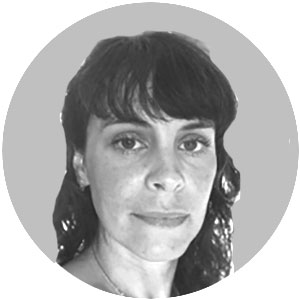
Emily McVey
National Institute for Public Health and the Environment (RIVM), The Netherlands
Emily McVey is an experienced Regulatory Toxicologist and works at the Dutch National Institute for Public Health and the Environment – RIVM. Her specialties include environmental toxicology, wild vertebrates (birds, mammals, amphibians, fish), molecular mechanisms of toxicity, neurodevelopmental toxicity and endocrine disruption testing and assessment.
moreless
Kirsi Myöhänen
European Chemicals Agency (ECHA), Finland
Kirsi Myöhänen is a Scientific Officer Unit (C1 Classification) of the European Chemicals Agency ECHA. A toxicologist (PhD Pharm, MSC Pharm, and MSC Tox, European Registered Toxicologist) by trainings, she has been working in ECHA Classification unit from 2012, in ECHA Biocides unit in 2013-2019 with biocidal active substance approval and since 2019 again in classification, where she has also been involved in developing classification criteria for EDs. Kirsi is also a co-chair of the ECHA Endocrine Disruptor Expert Group (ED EG). She has previously worked as Senior Adviser at the Finnish Safety and Chemicals Agency involved also in developing ED criteria for biocides and PPPs.
moreless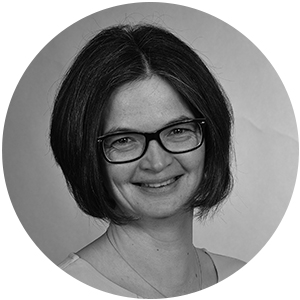
Anette Thiel
Ramboll, Germany
Anette Thiel is a Food Chemist and acquired her PhD in toxicology/endocrine disruption from the University of Kaiserslautern on the influence of metabolism on endocrine activity. She is Eurotox Registered Toxicologist and a Diplomate of the American Board of Toxicology and specialized in ED assessments. Anette has more than 20 years of experience in toxicology in industry and consulting. Before joining Ramboll - SCC in September 2020 as a group leader for Human Health Risk Assessment and Toxicology topics for biocides, she worked for DSM Nutritional Products in Switzerland being responsible for ED topics.
moreless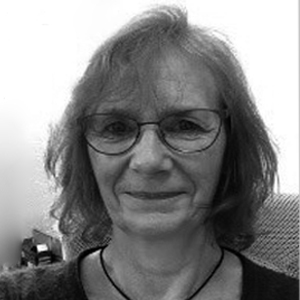
Helen Tinwell
Bayer CropScience, France
Helen Tinwell has been working for Bayer CropScience since 2005 and is based at their toxicology site in the south of France. She has a PhD in genotoxicity and over 30 years experience in mammalian toxicity in the field of agrochemicals that spans both research and regulatory activities, particularly in the area of endocrine disruption. She joined Bayer as a Research Toxicologist and then took on the role of team leader for Regulatory Toxicology in 2017. In July 2025 she switched roles and took the lead of a newly formed Exploration and Next Generation Risk Assessment group. In 2020 she was appointed as a Distinguished Bayer Science Fellow. She has developed expertise in endocrine disruption and participates in several ED associated internal and external task forces and working groups. She is currently the co-chair for the ECETOC taskforce on Non-EATS Modalities, represents ECETOC as an expert in the ECHA ED expert working group and is an active member of the CLE ED Expert Group.
moreless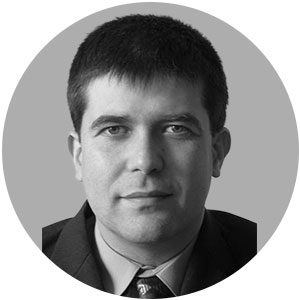
Nikolay Tzvetkov
European Commission, Belgium
Nikolay Kirilov Tzvetkov holds two Master's degrees from Sofia University in Biochemistry and Genetic and Cell Engineering and has been working as a Policy Officer for the Pesticides and Biocides Unit at DG SANTE since 2021. Previously, he worked as a Policy Officer in the Biodiversity Unit at Bulgaria's Ministry of Environment and Water and as a Research Scientist at institutions in Germany and Japan.
moreless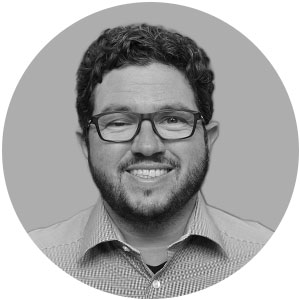
Markus Wahl
BASF, Germany
Markus Wahl (PhD) studied biology with a focus on molecular plant physiology, biochemistry and molecular cell biology. He is a registered Toxicologist (DGPT, ERT) and has been working for BASF since 2008, currently as an Expert in Global Regulatory Affairs for Aroma Ingredients.
moreless
Lennart Weltje
BASF, Germany
Lennart Weltje holds a PhD in ecotoxicology and environmental chemistry and currently works as a Senior Ecotoxicologist at BASF conducting risk assessments for PPPs and biocides. He is also an honorary Professor at the Faculty of Agricultural Sciences of the Georg-August University in Goettingen. His former stations include the Dutch National Institute for Public Health and the Environment (RIVM).
moreless
Torben Österlund
PEPPER, France
Torben Österlund joined Pepper in July 2024 as Chief Scientific Officer with responsibilities for all scientific aspects of method validation. Pepper pools public and private resources to organizes validation of bioassays bridging the gap between academic research and regulatory science. Torben has for 3 decades worked in academia, biotech and pharma based in bioassays for research, chemical efficacy and safety/toxicology. He has strong experience with early pharmaceutical discovery and safety sciences, and recently worked with new approach methods (NAMs) in different areas of toxicology.
morelessParticipation Fee: € 1,195.00 plus VAT.
The registration fee includes the following benefits:
Representatives of an authority or a public university are therefore eligible for a reduced fee of € 695.00 plus VAT per person (please provide evidence). The reduced fee cannot be combined with other rebates.
Group Reductions
For joint bookings received from one company we grant a 15% discount from the third participant onwards.
Terms of Cancellation / Book without Risk
You can cancel your participation in our online events free of charge and without giving reasons in writing up to 1 week before the start of the event. In the case of later cancellations and non-login to the online event, no participation fees can be refunded.
In this case, however, you will receive access to the documentation after the event.
You can name a substitute participant free of charge at any time.
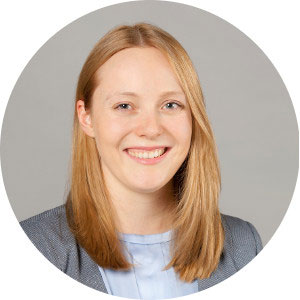
Claudia Werner
Programme and conceptual design
+49 231 75896-83
cwerner@akademie-fresenius.de

Claudia Werner
Programme and conceptual design
+49 231 75896-83
cwerner@akademie-fresenius.de

Claudia Werner
Programme and conceptual design
+49 231 75896-83
cwerner@akademie-fresenius.de
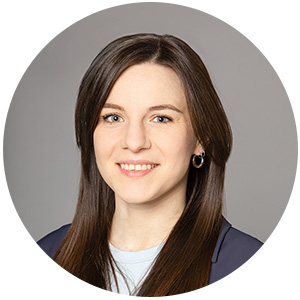
Alexandra Schardt
Organisation and participant management
+49 231 75896-74
aschardt@akademie-fresenius.de

Alexandra Schardt
Organisation and participant management
+49 231 75896-74
aschardt@akademie-fresenius.de
Present your Company at the Event.
You can personally present your products and services directly to your specified target group. We are happy to provide you with further information on our range of available options – from displaying company information at the reception counter to presenting your company with an exhibition stand.
We would be pleased to assist you personally:

Monika Stratmann
Phone: +49 231 75896-48
info@akademie-fresenius.de
We offer journalists and editors a platform where they can get in touch with the experts.
If you are the editor of a specialist publication and interested in a press pass or media partnership, please contact us well in advance. We are happy to advise you.
Please contact us:
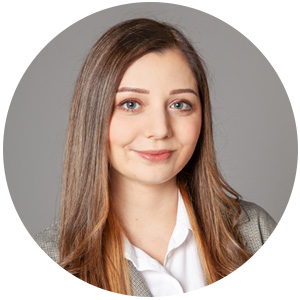
Katharina Geraridis
Phone: +49 231 75896-67
presse@akademie-fresenius.de
© Die Akademie Fresenius GmbH